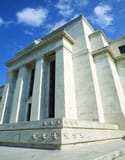As the public comment period came to a close Monday for the so-called Volcker rule, the US regulatory agencies which jointly proposed the legislation faced wide-ranging criticism and doubt over its practical implementation.
The rule, which is part of the Dodd-Frank Wall Street Reform and Consumer Protection Act, bans speculative trading by deposit-taking institutions, a move widely supported by a general public looking to rein in a perceived out-of-control banking sector.
But many financial intuitions believe the 300-page rule is overly complex, too vague and will impact in ways detrimental to American investors and savers.
However, former Federal Reserve chairman Paul Volcker, for which the prop trading ban is named has defended regulators. “Simplicity and clarity are challenging objectives, which for full success, require constructive participation by the banking industry,” he said in his own submission to the Securities and Exchange Commission (SEC) this week.
Insurance companies are worried the Volcker rule will negatively affect their investments because the rule does not expressly allow their general accounts to own or invest in hedge funds or private equity funds.
Buy- and sell-side market participants are anxious for clarity over whether or not the rule captures trades made in the interests of end-investors, such as market making or hedging their own portfolio.
“We are concerned that the approach taken by the financial regulators in implementing the proprietary trading prohibition… poses significant impediments to our ability to effectively and efficiently manage our client portfolios,” said Amy E. Koch, director of fixed income trading at Standish Mellon Asset Management, a division of BNY Mellon.
Koch told the SEC that under Volcker, while buy-side investors would continue to have unlimited upside and downside in transactions, dealers would have only limited upside.
“They would be forced to widen bid/offer spreads to account for this risk,” she said. “Dealers would not be incentivised to trade bonds if they felt that there was excessive downside risk and the efficient market would cease to operate. As a result, volatility would increase.”
Koch also believed the rule as it stands would cause significant market dislocations, with severely weakened liquidity and non-competitive trading levels, notably in the fixed-income markets.
“Dealers will be hesitant to
transact in secondary cash bonds because of the extraordinary compliance
requirements and the lack of clarity surrounding the rules,” said Koch. “The
proposed regulations fail to consider the uncertain and subjective factors in
the market that the dealer would face at the time of the trade. The fear of
post-execution regulatory issues could seize the market from functioning
normally and prevent market making.”
Sailing into murky waters
One of the principle concerns of the global investment community has been the rule’s likely extraterritorial reach, which could limit the operations of any foreign financial institutions with interests in the US.
Any bank trading in the US, including subsidiaries and branches of foreign banks, is subject to the rule. Transactions are only considered to have occurred solely outside the US only if conducted by a banking entity not organised under US law, with no party resident of the US, no personnel of any participating bank physically located in the US, and no part of the transaction conducted within the US.
The prop trading ban could also severely affect the liquidity of foreign sovereign debt. British, Japanese and Canadian banks and government agencies have lobbied the SEC over their interests.
“The restrictions on proprietary trading will negatively affect the liquidity for Canadian federal and provincial government bonds in the secondary market, and increase costs for Ontario, banking entities and for investors who buy Ontario’s bonds,” the Ontario Financing Authority said in a letter to the SEC.
While US government debt is already exempt, after a global backlash, American regulators are now exploring the possibility of also exempting the sovereign debt of other nations.
The prop trading ban has provisions to exempt an activity if the exemption would “promote and protect the safety and soundness of the banking entity and the financial stability of the United States”. And even local bond issuers are calling for this provision to be used so that Volcker does not harm their liquidity. Last month, the Municipal Securities Rulemaking Board called for the exemption of all municipal bonds, warning failure to do so would hurt the municipal market without strengthen the banking system.
Next leg of the journey
Over the public comment period which lasted from 12 October to 13 February, the SEC received 172 public statements from a wide range of stakeholders, including lobby groups, foreign regulators, banks, brokers, academics and private individuals. Twenty-six groups held meetings to discuss Volcker with agency commissioners and SEC senior staff, most recently lobby group the Investment Company Institute, Bank of America Merrill Lynch Morgan Stanley, and Goldman Sachs.
The SEC’s version of Volcker was jointly proposed by the Board of Governors of the Federal Reserve System, the Federal Deposit Insurance Corporation and the Office of the Comptroller of the Currency.
US derivatives regulator the Commodity Futures Trading Commission (CFTC), handed down its version of the Volcker rule on 12 January, largely mirroring the joint rule proposed in October. The CFTC’s proposal is presently halfway through its own 60-day consultation period.
Congressional lawmakers in the House Committee on Financial Services committee are presently reviewing both versions of the rule. Some members of the committee have already called for the agencies to re-propose a new, simplified version of the prop trading ban and many industry players doubt whether the Volcker rule will be implemented on schedule by July.
